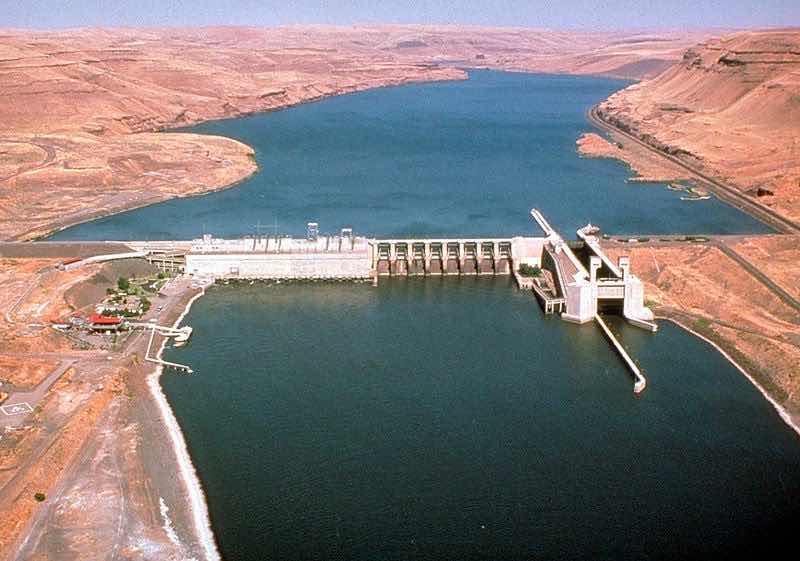forum
library
tutorial
contact

Idaho's Water Rights Pact Looks Smarter All the Time
by Rocky BarkerIdaho Statesman, November 17, 2014
|
the film forum library tutorial contact |

|
Idaho's Water Rights Pact Looks Smarter All the Timeby Rocky BarkerIdaho Statesman, November 17, 2014 |
 Doubters who say Idaho made the wrong decision when it reached a water deal with the Nez Perce tribe need only look at the mess in the Klamath River Basin along the Oregon-California border.
Doubters who say Idaho made the wrong decision when it reached a water deal with the Nez Perce tribe need only look at the mess in the Klamath River Basin along the Oregon-California border.
It blew up in 2001, when farmers' headgates were locked to preserve flows for endangered salmon, prompting a classic modern Western environmental saga. Farmers lost $27 million to $47 million and there were death threats, shootings and even a farmers' cavalry charge.
The Bush administration made sure the farmers got their water, triggering one of the largest salmon die-offs in history. Then the Klamath tribes got angry.
PacifiCorp raised electric rates 1,000 percent and made everybody mad -- which got everybody to the table. When the Federal Energy Regulatory Commission ordered PacifiCorp to install fish ladders on its three dams in 2007 -- which would cost more than removing the dams -- the stage was set for a grand deal.
Dirk Kempthorne, the former Idaho governor who had just been appointed interior secretary, brought all the sides to the table, and they cut a deal, which included eventually removing PacifiCorp's Klamath dams. But some ranchers weren't happy and kept fighting.
When the state of Oregon recognized the tribes' senior water rights in 2013, the ranchers were dry again and came back to the table.
Earlier this year, the parties cut a new deal to carry out the earlier agreements that shared the water between the tribes and the ranchers and farmers. But Congress has to act by the end of this year or it all could fall apart.
In August, I moderated a panel with Kempthorne, Deputy Interior Secretary Mike Connor and former Oregon Gov. Ted Kulongoski -- all parties to the Klamath agreement -- as part of Idaho's celebration to mark the end of its 27-year Snake River Basin water adjudication process, which included the Nez Perce agreement.
The panelists agreed that this year's congressional action was critical to the well-being of farmers, the tribes, the salmon and PacifiCorp.
But outgoing House Resources Committee Chairman Doc Hastings, R-Wash., has made it clear he won't support the deal because it would authorize removing the dams, which he opposes despite the overwhelming economic case. He doesn't want it to set precedence that might be applied to removing the four Snake River dams below Lewiston in Washington state to save Idaho's salmon.
Idaho was able to get its Nez Perce Agreement authorized by Congress at the end of the 2004 session due in part to the state's skillful and united congressional delegation. Southwest Oregon's congressman, Republican Greg Walden, has joined Hastings in opposition to the Klamath bill.
The Klamath bill was marked up by the Senate Energy and Natural Resources Committee on Thursday, setting the stage for adding it to this year's lame-duck session spending bill. If it fails, the tribes' senior water rights will stay in place and the future of the farms, dams and salmon will remain uncertain.
Even though Idaho avoided this scenario on the Snake River, it faces a similar threat in the Coeur d'Alene and Spokane River basins, where the state has begun an adjudication process to sort out water rights. If the state can't settle with the Coeur d'Alene Tribe, the risk of losing control over all of the water in the basin looms.
The case for settlement appears strong in both the Klamath and the Coeur d'Alene basins. But we are talking about water in the West, where centuries of history and emotion can affect even logical routes to resolution.
learn more on topics covered in the film
see the video
read the script
learn the songs
discussion forum
